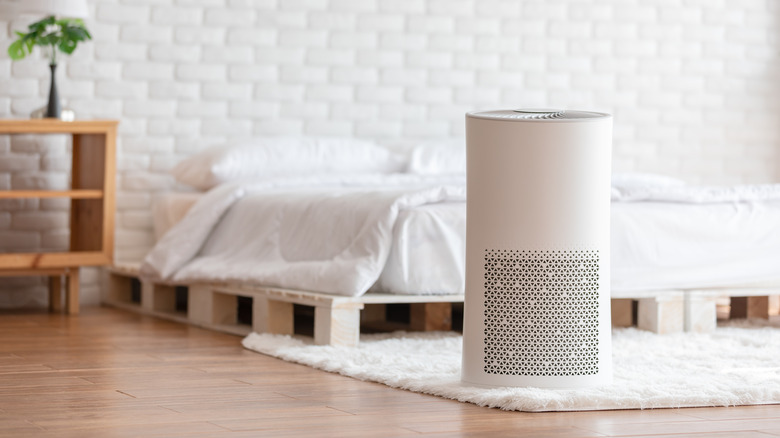New Research Shows How Air Pollution Affects Women And Men Differently
If you live in or near a city, you are probably concerned about how air pollution affects you. New research suggests that women may need to be more concerned than men. A small Canadian study found that women may experience more damage from breathing in fumes from diesel exhaust than men (via US News). The study, which involved 10 people, was conducted by instructing five men and five women to breathe in filtered air for four hours, then to breathe in air containing diesel fumes for four hours. The study found that significantly more damage was done to the women in the study than the men.
"This is important as respiratory diseases such as asthma are known to affect females and males differently, with females more likely to suffer severe asthma that does not respond to treatments," said Professor Neeloffer Mookherjee at the University of Manitoba, a researcher who helped lead the study. "Therefore, we need to know a lot more about how females and males respond to air pollution and what this means for preventing, diagnosing, and treating their respiratory disease." The researchers have plans for more studies in the future to better understand the differences between female and male immune responses.
How to protect yourself against air pollution
As the world becomes more industrialized, air pollution has become an increasingly pressing global issue. So what can you do to protect yourself against this growing health hazard? First, stay informed about air quality in your area. Many countries now have air quality index (AQI) systems that track levels of various pollutants and provide updates in real-time or near-real-time (via American Lung Association). Checking the AQI for your area can help you avoid exposure when pollution levels are high.
Second, take steps to reduce your own emissions. If you live in an urban area, this may mean walking or biking instead of driving whenever possible (via California Air Resources Board). Switching to low-emitting or electric vehicles is another great option. And no matter where you live, avoiding the use of wood-burning stoves and fireplaces can help keep particulate pollution levels down. Third, make your home and office as airtight as possible. This will help reduce the amount of outdoor air that seeps in and also cut down on the need to heat or cool the indoor air. Just be sure to open up windows and doors for a few minutes each day to ensure that fresh air is still circulating! Finally, invest in an air purifier (via Consumer Reports). These devices can remove many of the harmful particles in the air, providing you with some much-needed relief if you live in an area with high pollution levels.


